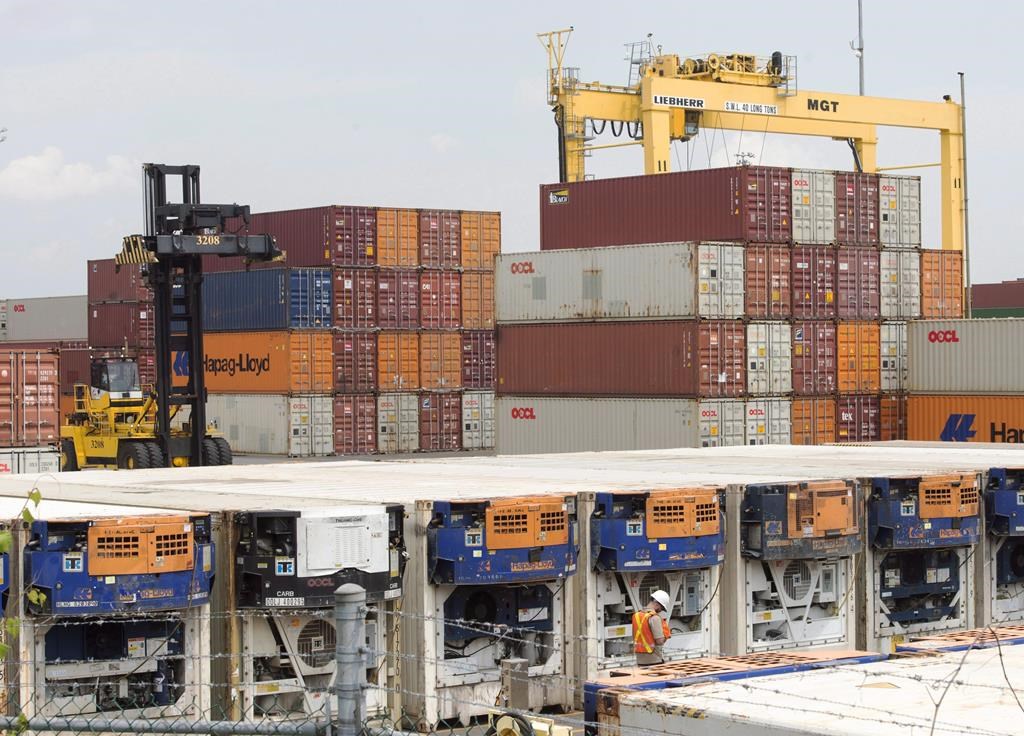The COVID-19 pandemic, a dockworkers strike and a rail blockage hit the Port of Montreal, which saw its cargo volumes fall in 2020 for the first time in seven years.

The port says its volumes fell 14 per cent to 35.1 million tonnes last year.
As a result, its net profit was cut almost in half to $16.7 million, compared with $31.9 million a year earlier, the port said at its annual meeting.
READ MORE: Port of Montreal says resuming full operations to take several days, clients should expect delays
The plunge was mainly attributable to lower operating revenues, which fell 10 per cent to $116.6 million, while expenses remained stable at $99.9 million.

Get daily National news
Volumes in the “liquid bulk” sector recorded the largest decline, fell 24 per cent to 12.4 million tonnes, due to a drop in demand for petroleum products from pandemic lockdowns.
“Dry bulk” volumes fell nine per cent to 8.4 million tonnes, mainly due to slowdowns in the construction and automotive sectors. The agri-food industry was not impacted by the pandemic due to bumper grain corps in Western Canada and soybeans in Quebec and Ontario.
READ MORE: Senate approves Port of Montreal back-to-work legislation
The number of containers in transit also fell by 5.5 per cent to 14.3 million tonnes or more than 1.6 million TEUs (twenty-foot equivalent units) moving through the port’s five container terminals. The cancellation of the cruise season also hurt the federal agency.
Striking dockworkers returned to work Sunday after the legislation was approved by the Senate on Friday night. However, the Maritime Employers Association said it would take several days for business to resume to normal levels.
The union. which has been without a contract since December 2018, previously held a 10-day strike in August last year.












Comments